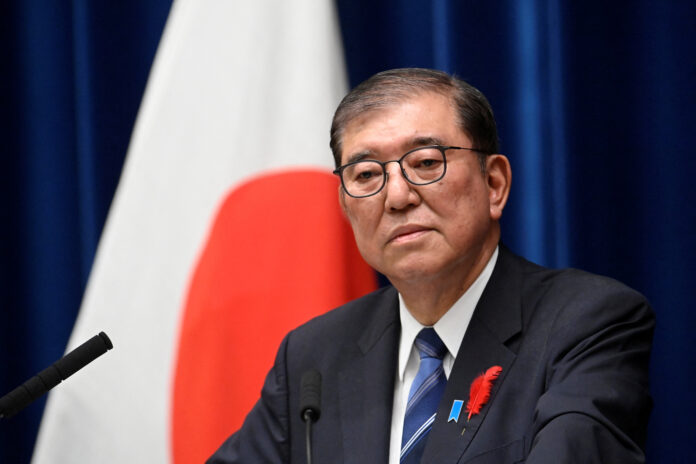Japanese Prime Minister Shigeru Ishiba on Monday said increasing U.S. corn imports could be a potential option in trade talks with Washington, but he stressed Japan would not sacrifice its agricultural industry to secure lower tariffs on automobiles.
Japan has made limited progress in two rounds of trade talks with the U.S., primarily focused on exemptions from U.S. tariffs, including a 25% levy on its automobile exports. In the first round of talks last month, U.S. negotiators raised concerns over Japan’s market barriers in the automobile and rice sectors.
Ishiba said agreeing to buy more U.S. corn would be less controversial than increasing rice imports, which are politically sensitive due to the strong support Japan’s Liberal Democratic Party (LDP) receives from rice farmers.
Speaking in parliament, Ishiba reiterated that Japan would not sacrifice domestic agriculture for the sake of securing tariff reductions on autos. “Japan can use corn not for consumption but for use as ethanol fuel. This would be in Japan’s national interest,” he said, adding that Japanese soil was not suited for large-scale corn production.
The U.S. exported $2.8 billion worth of corn to Japan in 2024, following a significant decline in exports to China.
Japan’s top trade negotiator, Ryosei Akazawa, also reinforced Japan’s position, insisting the U.S. must remove all tariffs imposed by the Trump administration. Akazawa’s comments come as Japan looks to schedule a third round of high-level trade talks with the U.S. later this month, potentially influenced by an agreement between the U.S. and China to reduce “reciprocal” tariffs.
Reports suggest Japan may propose technical cooperation with the U.S. in shipbuilding as part of the negotiations.
Japanese lawmakers have made it clear that no deal with the U.S. would be acceptable unless the 25% auto tariff is lifted, as the automobile sector plays a crucial role in Japan’s export-driven economy. This concern is already being felt, with Mazda reporting a 45.1% drop in net profits for the fiscal year ending in March.
The tariff issue intensified on April 2 when U.S. President Donald Trump imposed a 10% tariff on imports from most countries, including Japan. A 24% tariff is set to take effect in July unless a deal is reached.




